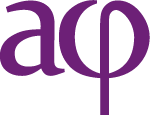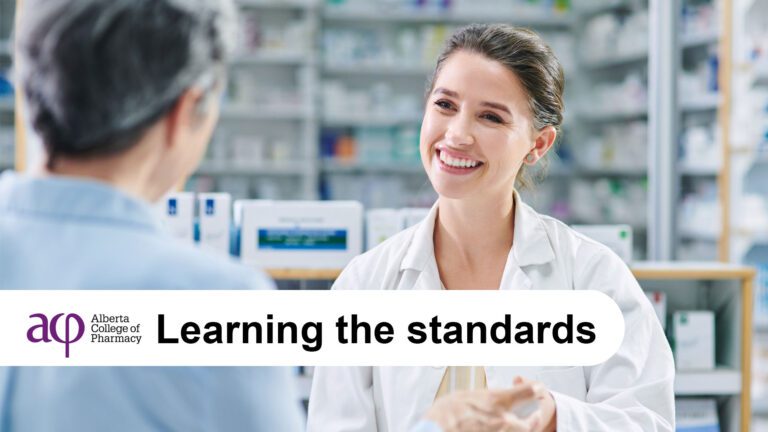Council convened October 4-6 in Kananaskis. The two-and-a-half-day session integrated a full day of board development with council’s regular business meeting. Following is a summary of the key issues deliberated by council:
Preliminary review of DRAFT business plan and priorities for 2018 – Council reviewed the preliminary business plan and priorities for 2018, including estimates for 2019/20. ACP is entering the third year of our current five-year business plan; therefore, our priorities follow through on the five goals established by council in 2016:
- Pharmacy technicians will be integrated into pharmacy practice teams, exercising responsibility for roles they’re authorized to fulfill;
- Pharmacists will consistently conduct an appropriate assessment of each patient prior to providing any pharmacist service;
- Patient care records will include continuous documentation of pharmacist assessments, treatment plans, record of care, and monitoring results;
- Patients will have access to pharmacist prescribing and injections through all licensed pharmacy practice settings; and,
- Patients will expect pharmacists to provide appropriate assessments, advice, and support about their health (treatment) plan at each encounter.
During 2018 ACP will:
- Pilot pharmacy licensee education program – council has identified the leadership and performance of pharmacy licensees as being critical to the quality of care provided from pharmacies, the experiences of individuals using pharmacy services, and the success of the profession. Therefore, council has supported development of a learning program for pharmacy licensees, to support their effectiveness in providing pharmacy services that ensure patient safety, the quality of patient care and the integrity of the drug distribution system. Council will approve rules for the program and ACP will pilot it amongst a cohort of licensees during 2018.
- Develop, approve, and implement Version 1 of Standards for Using POCT in Pharmacy Practice – ACP has partnered with RxA to develop a framework for using Point of Care Testing (POCT) in pharmacy practice. This framework will inform ACP in developing a first phase of standards for pharmacists and pharmacy technicians using POCT and providing POCT in their practices.
- Develop DRAFT “tenets for professionalism” and engage in discussion with registrants, stakeholders, and the public – professional behaviours are foundational to the privilege of being recognized as a professional. It has been observed that the tenets of professionalism should be foundational to and inform all programs administered by ACP, and the way pharmacists and pharmacy technicians practice. During 2018 ACP will engage with registrants, stakeholders, and the public to discuss professionalism to assist in identifying those behaviours most important to our “professional” identity.
- Pilot a “practice improvement” component to our Competence program to facilitate improvement required by individuals identified by the Competence Committee – ACP has adopted a culture of quality improvement. Generally, we pursue quality assurance through evaluative, educational, and support processes that nurture system, process, and personal growth. Our competence program encourages continuous personal growth to keep pace with new knowledge, new technologies, and new ways of doing things. It also provides for coaching and mentoring registrants who may not practice at the minimum accepted level. ACP is developing an improvement program to support registrants identified as requiring assistance through mentoring, coaching, and evaluative processes.
- Approve new Standards for Compounding Non-Sterile Products, establish dates for all compounding standards to fully come into effect, and affirm monitoring and inspection processes to support quality assurance of these – ACP will consult on DRAFT Standards for Non-Sterile Compounding in early 2018. Upon approval, a final date for all Compounding Standards will be established. The complexity of the new Standards for Compounding Sterile Products invites new alternatives for monitoring and assessing quality assurance. ACP is currently assessing alternatives, and a preferred approach will be established in 2018.
- Implement Merlin to accommodate pharmacy technician renewal for January 2019 – ACP is developing and implementing a new information management system to support all of our business processes. We have tagged it “Merlin” and it is being developed using Service Now technology. Merlin will provide ACP with a continuum of new business solutions and possibilities, arising from innovation and creativity of other global users. It will empower registrants to take personal responsibility for their own registration information and, as a service portal, will become a knowledge hub to them and other users. Pursuit of these goals requires a significant investment in human and financial resources, and has invited review and enhancements to all ACP registration and pharmacy licensing processes. Watch for more details throughout 2018, as we move towards implementation in the fall of 2018 to support pharmacy technician annual permit renewal for 2019.
- Negotiate, plan, and facilitate expansion to larger office space to accommodate administrative needs – Our administrative team has grown to support the substantive increase in the number of registrants and pharmacies, and the number and complexity of health system issues ACP is engaged in addressing. Despite having three years left on our lease, we have optimized use of our current office space. We are assessing alternatives, including the possibility of expanding our footprint at our current location. Our goals are to ensure that we provide a professional working environment for our administrative team through which both they and ACP can be successful, have adequate space to ensure capacity and flexibility over the next 10 years, and be fiscally responsible.
Other topics discussed at the meeting include:
Cannabis for medical use – with government having announced its policy framework to support the recreational use of cannabis upon it being decriminalized, council has turned its focus to deliberating whether cannabis for medical purposes should be provided from pharmacies. Important to council’s consideration are:
- that cannabis products for medical use are safe, free of contaminants, and that the concentration of ingredients is standardized and consistent.
- that reproducible evidence from standardized clinical trials supports the efficacy of cannabis and its use for specific therapeutic purposes.
These criteria are typically managed by Health Canada through licensing and drug approval processes. Simply stated, if cannabis products are appropriately licensed and assigned a Drug Identification Number, then it is reasonable that they should only be provided through pharmacies pursuant to a prescription.
That said, the need for more research has been identified and health policy continues to evolve. In the immediate future, cannabis for medical use continues to be regulated under the Access to Cannabis for Medical Purposes Regulation and cannot be provided from community-based pharmacies. Council will continue its deliberations.
Review of ACP’s Guidelines for Naloxone – council has directed that its guidelines for Take Home Naloxone Kits be reviewed and updated to recognize Naloxone as a nonprescription drug, and to accommodate distribution and training by pharmacy technicians and pharmacy assistants. Amended guidelines will be considered by council in December.
Supporting licensees to meet privacy requirements when being audited – the Health Information Act and its regulations allow for auditors to access personal health information. However, pharmacy licensees have a responsibility to ensure that the appropriate processes are in place when providing access to personal health information for these purposes. ACP is developing tools to both inform and support pharmacy licensees to fulfill their responsibilities under the HIA in such circumstances.
Manufacturer’s coupons – manufacturer’s coupons, as an alternative to sampling and/or to support payment for a manufacturer’s product, have become increasingly prevalent. A panel including Mr. Bill Adams (STI Canada), Dr. Susan Ulan (CPSA), and Michele Caron (Quebec Order of Pharmacists) addressed council. Their insights, supported council’s deliberations and direction for policy development on this subject. A draft policy will be considered by council in December.
Originally published in the November 8, 2017, issue of The Link




